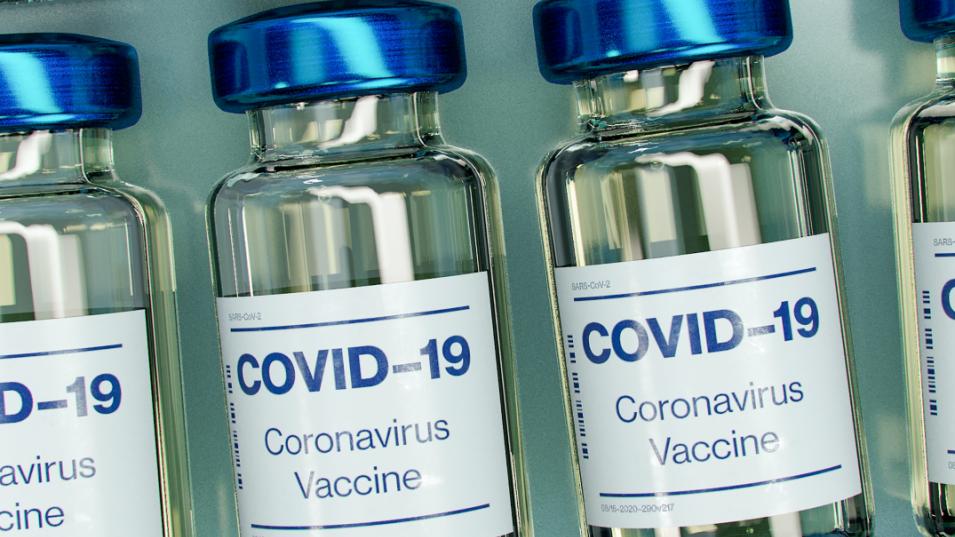At a virtual press conference held by the World Health Organization officials warned there is no clear evidence COVID-19 vaccines are effective at preventing asymptomatic infection and transmission.
Story at-a-glance:
- The World Health Organization (WHO) warned there is no guarantee that COVID-19 vaccines will prevent people from being infected with the SARS-CoV-2 virus and transmitting it to other people.
- Vaccinated persons still need to mask and social distance because they could be able to spread the new coronavirus to others without knowing it, according to WHO and U.S. health officials.
- As with measles and polio, there is no guarantee of eliminating the SARS-CoV-2 virus through mass vaccination programs.
- There is a possibility the U.S. government will introduce “COVID-19 vaccine passports” and that some local governments and businesses will make COVID-19 vaccines mandatory, including in schools.
- Technology companies have been working on creating a digital certificate, which contains personal medical information giving evidence that an individual has been vaccinated and which can be used as a screening tool by employers and businesses.
At a virtual press conference held by the WHO Dec. 28, 2020, officials warned there is no guarantee that COVID-19 vaccines will prevent people from being infected with the SARS-CoV-2 virus and transmitting it to other people.
In a New Year’s Day interview with Newsweek, Dr. Anthony Fauci, director of the National Institute of Allergy and Infectious Diseases, reinforced the WHO’s admission that health officials do not know if COVID-19 vaccines prevent infection or if people can spread the virus to others after getting vaccinated.
According to U.S. and WHO health officials, vaccinated persons still need to mask and social distance because they could be able to spread the new coronavirus to others without knowing it.
Although the U.S. Food and Drug Administration granted Emergency Use Authorization in December 2020 for Pfizer/BioNTech and Moderna to release their experimental mRNA vaccines for use in the U.S., the companies only provided evidence from clinical trials to demonstrate that, compared to unvaccinated trial participants, their vaccines prevented more mild to severe COVID-19 disease symptoms in vaccinated participants.
The companies did not investigate whether the vaccines prevent people from becoming asymptomatically infected with the SARS-CoV-2 virus and/or transmitting it to other people.
COVID-19 vaccines designed to prevent severe disease
According to WHO officials, while it appears the vaccines can prevent clinically symptomatic COVID-19 clinical disease, there is no clear evidence COVID-19 vaccines are effective at preventing asymptomatic infection and transmission. During the press conference, WHO chief scientist and pediatrician Dr. Soumya Swaminathan said:
“We continue to wait for more results from the vaccine trials to really understand whether the vaccines, apart from preventing symptomatic disease and severe disease and deaths, whether they’re also going to reduce infection or prevent people from getting infected with the virus, then from passing it on or transmitting it to other people.
I don’t believe we have the evidence on any of the vaccines to be confident that it’s going to prevent people from actually getting the infection and therefore being able to pass it on.”
Swaminathan said the COVID-19 vaccine was designed to first prevent symptomatic disease, severe disease and deaths. Dr. Mark Ryan, MPH, who is executive director of the WHO Health Emergencies Program, agreed with Swaminathan and added:
“So the first primary objective is to decrease the impact the disease is having on people’s lives and, therefore, that will be a major step forward in bringing the world back to some kind of normal.
The second phase is then looking at how will this vaccine affect transmission. We just don’t know enough yet about length of protection and other things to be absolutely able to predict that, but we should be able to get good control of the virus.”
SARS-CoV-2 eradication via mass vaccination is a ‘moonshot’
Ryan also pointed out that the decision by WHO to try to eradicate the SARS-CoV-2 virus “requires a much higher degree of efficiency and effectiveness in the vaccination program and the other control measures” and that it is likely the new coronavirus will “become another endemic virus, a virus that will remain somewhat of a threat but a very low level threat in the context of an effective vaccination program.”
Ryan cautioned that, like with measles and polio, there is no guarantee of eliminating the SARS-CoV-2 virus through mass vaccination programs. He said:
“The existence of a vaccine even at high efficacy is no guarantee of eliminating or eradicating an infectious disease. That’s a very high bar for us to be able to get over. First, we have to focus on saving lives, getting good control of this epidemic, and then we will deal with the moonshot of potentially being able to eliminate or eradicate this virus.”
Azar says get vaccinated but still mask up
In a Dec. 22, 2020 interview, HHS Secretary Alex Azar told Fox News that the current “consensus” among health officials is that people who get two doses of COVID-19 vaccine should still mask up and practice social distancing. He said:
“We’re still studying some fundamental scientific questions though, such as, once you’ve been vaccinated, do you still need to wear a mask to protect others, could you still be carrying the virus even though you’re protected from it …
“If you’re getting vaccinated right now, still social distance, still wear a mask, but all these [recommendations] have to be data and science-driven, so we’re working to generate the data there so that as we go forward, we’ll be able to advise people on a foundation of data.”
COVID-19 vaccine passports and mandates may be coming
In an interview on CNN in early April 2020 when most states were in some form of a coronavirus lockdown, Fauci told Alyson Camerota, “It’s very likely that there are a large number of people out there that have been infected, have been asymptomatic, and did not know they were infected.”
Eight months later, on New Year’s Day 2021, Fauci told Newsweek that in his role as the new administration’s chief medical adviser, there is a possibility the federal government will eventually introduce “COVID-19 vaccine passports” and that some city, county or state governments and businesses will make COVID-19 vaccines mandatory, including in schools.
“Everything will be on the table,” Fauci declared. A week earlier, Fauci told The New York Times that between 70% and 90% of the U.S. population would need to get COVID-19 vaccinations in order for the country to reach vaccine-acquired herd immunity. He explained why he has continued to shift the “herd immunity” goal post over the past year:
“When polls said only about half of all Americans would take a vaccine, I was saying herd immunity would take 70 to 75 percent. Then, when newer surveys said 60 percent or more would take it, I thought, ‘I can nudge this up a bit,’ so I went to 80, 85 … We really don’t know what the real number is. I think the real range is somewhere between 70 to 90 percent. But, I’m not going to say 90 percent.”
Even as Fauci discussed vaccine passports and mandates in Newsweek, he admitted that proving that COVID-19 vaccines do more than prevent clinical disease but also block infection and transmission has been elusive. He emphasized that persons who get vaccinated still must wear masks:
“We do not know if the vaccines that prevent clinical disease also prevent infection. They very well might, but we have not proven that yet … That’s the reason I keep saying that even though you get vaccinated, we should not eliminate, at all, public health measures like wearing masks because we don’t know yet what the effect [of the vaccine] is on transmissibility.”
Fauci added, “We don’t know what we don’t know.”
Immunity passports: suggested soon after the pandemic began
Government health officials in Israel are getting ready to issue a COVID-19 “green passport” to citizens who have received two COVID-19 shots, which will exempt them from travel restrictions and testing for infection with the SARS-CoV-2 virus or being required to quarantine after exposure to an infected person.
Technology companies have been working on creating a digital certificate, which contains personal medical information giving evidence that an individual has been vaccinated and can be used as a screening tool by employers, businesses and owners or operators of services and public venues, such as airlines, theme parks, concert halls, hotels and other places where people gather in groups with other people.
Immediately after the coronavirus pandemic was declared by the WHO last winter, Silicon Valley businessman Bill Gates began talking about the need for issuing digital certificates proving immunity to the virus and, once a COVID-19 vaccine becomes available, proof of vaccination.
In a comment posted on Reddit in March 2020, Gates said, “Eventually we will have some digital certificates to show who has recovered or been tested recently or when we have a vaccine who has received it.”
That same month in a TED Talk, Gates explained how lockdowns and resulting “economic pain” will prevent people from getting naturally acquired immunity to the SARS-CoV-2 virus and that immunity “certificates” will eventually be required. Gates said:
“Now we don’t want to have a lot of recovered people, you know. To be clear, we’re trying through the shutdown in the United States, to not get to one percent of the population infected. We’re well below that today, but with exponentiation you could get past that three million. I believe we will be able to avoid that with having this economic pain.
“Eventually, what we’ll have to have is certificates of who is a recovered person, who’s a vaccinated person, because you don’t want people moving around the world where you’ll have some countries that won’t have it under control, sadly. You don’t want to completely block off the ability for people to go there and come back and move around.”
In an April 9, 2020, interview on National Public Radio, Gates returned to the message that some “social distancing” measures have to stay in place “until we get a vaccine that almost everybody’s had.” He said:
“What I’m saying, what Dr. Anthony Fauci is saying, what some other experts are saying, there’s a great deal of consistency. We’re not sure yet which activities should be resumed, because until we get a vaccine that almost everybody’s had, the risk of a rebound will be there.”
As of Jan. 3, 2021, the CDC had recorded over 20 million COVID-19 cases and nearly 350,000 related deaths.
Lasting immunity after mild, asymptomatic COVID-19 infection
A study was published Dec. 24, 2020, in Science Immunology by scientists from Queen Mary, University of London, in which they analyzed antibody and T cell responses in 136 London health care workers and reported that there was evidence of protective immunity up to four months after mild or asymptomatic COVID-19.
A press release issued by the university stated that mild or asymptomatic SARS-CoV-2 infections represent the largest infected group and noted that researchers found T cell responses tended to be higher in those with the classic, defining symptoms of COVID-19, while asymptomatic infection resulted in a weaker T cell immunity than symptomatic infection, but equivalent neutralizing antibody responses. One of the researchers commented:
“Our study of SARS-CoV-2 infection in healthcare workers from London hospitals reveals that four months after infection, around 90 percent of individuals have antibodies to block the virus. Even more encouragingly, in 66 percent of healthcare workers we see levels of these protective antibodies are high and that this robust antibody response is complemented by T cells which we see reacting to various parts of the virus.
“This is good news. It means that if you have been infected there is a good chance that you will have developed antibodies and T cells that may provide some protection if you encounter the virus again.”
Originally published by Mercola.
The views and opinions expressed in this article are those of the authors and do not necessarily reflect the views of Children’s Health Defense.





